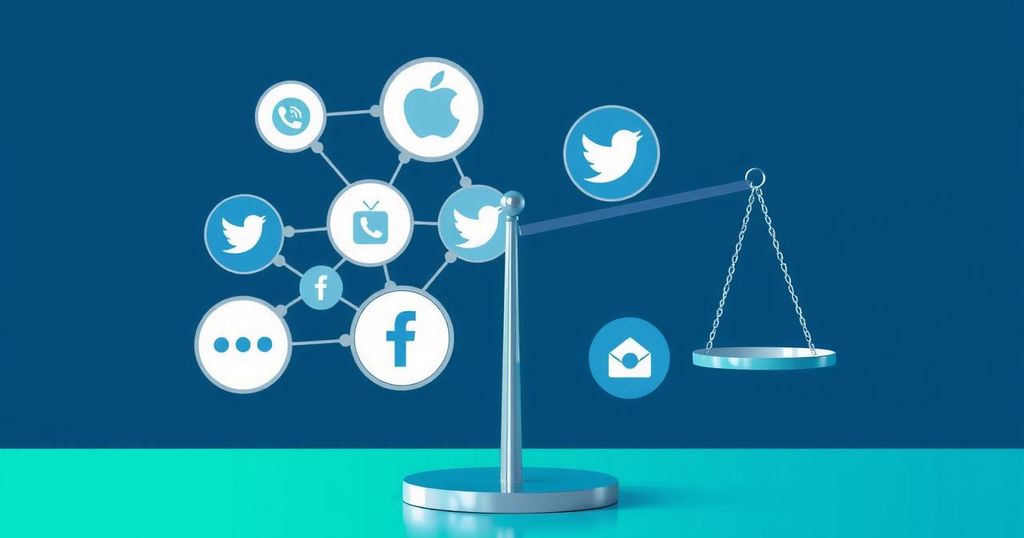Brazil’s Supreme Court Majority Supports Tougher Social Media Regulations
Brazil’s Supreme Court is moving to impose stricter regulations on social media companies, seeking to clarify their accountability in content removal. Six of eleven judges support greater regulation, while the issue unfolds amid political tensions linked to former president Jair Bolsonaro’s actions post-election. This decision could reshape how social media operates in Brazil, affecting millions of users.
In a significant development, Brazil’s Supreme Court has decided to move towards stricter regulations on social media, a case that has implications for the entire Latin American region regarding the control of false information and hate speech. As of Wednesday, the Court formed a majority in favor of enhancing the legal obligations of social media companies like X, TikTok, Instagram, and Facebook in terms of monitoring and removing illegal content. The judges are trying to clarify the degree of responsibility these platforms hold and the potential penalties if they fail to act.
This decision will set a precedent that affects millions of social media users across Brazil. Central to the debate is a specific clause in Brazil’s Civil Framework for the Internet, which has been in force since 2014. This law stipulates that social media platforms are only liable for harm caused by user-generated content if they disregard a judicial order to remove it. Until now, the onus has largely been on the judiciary to enforce content removal.
By the latest count, six out of the 11 judges have shown support for increased accountability, indicating that social media sites should take proactive steps to identify and remove harmful content without waiting for a court order. Notably, one judge has opposed this tighter regulation, and three others are still to weigh in on the matter.
Judge Alexandre de Moraes has been a vocal advocate for this move, often engaging directly in disputes with X’s owner Elon Musk and various right-wing commentators over the nature of content allowed on social media. The Court’s review is also occurring alongside the ongoing trial of Jair Bolsonaro, Brazil’s former president, who faces allegations of attempting to orchestrate a coup following his defeat in the 2022 elections. Prosecutors claim Bolsonaro’s supporters leveraged social media platforms to spread disinformation about the electoral process and organize opposition against his successor, Luiz Inacio Lula da Silva.
In a controversial turn of events, Judge Moraes previously suspended X for 40 days due to the platform’s noncompliance with several court orders aimed at curbing online misinformation. He has also mandated the suspension of the accounts belonging to several Bolsonaro affiliates. Critics, including Musk and former officials from the Trump administration, have accused Moraes of infringing on free speech and are considering imposing sanctions against him due to Bolsonaro’s claims of judicial persecution.
Lula, who successfully won the 2022 elections against Bolsonaro, is pushing for an “acceleration in the regulation” of social media platforms, reflecting the growing concern over the role these companies play in shaping public discourse and the political landscape in Brazil. The Supreme Court’s decisions in the coming weeks will be closely watched, as they hold the potential to reshape the way social media is regulated in Brazil for years to come.
The Brazilian Supreme Court’s move towards stricter social media regulations marks a pivotal moment in addressing the challenges of misinformation and hate speech. With a majority of judges favoring increased responsibility for platforms, the decision could have wide-reaching implications for social media users and content moderation practices. This situation unfolds against a backdrop of high-stakes legal battles and political tensions, raising critical questions about free speech and the responsibilities of tech companies.
Original Source: www.france24.com




Post Comment